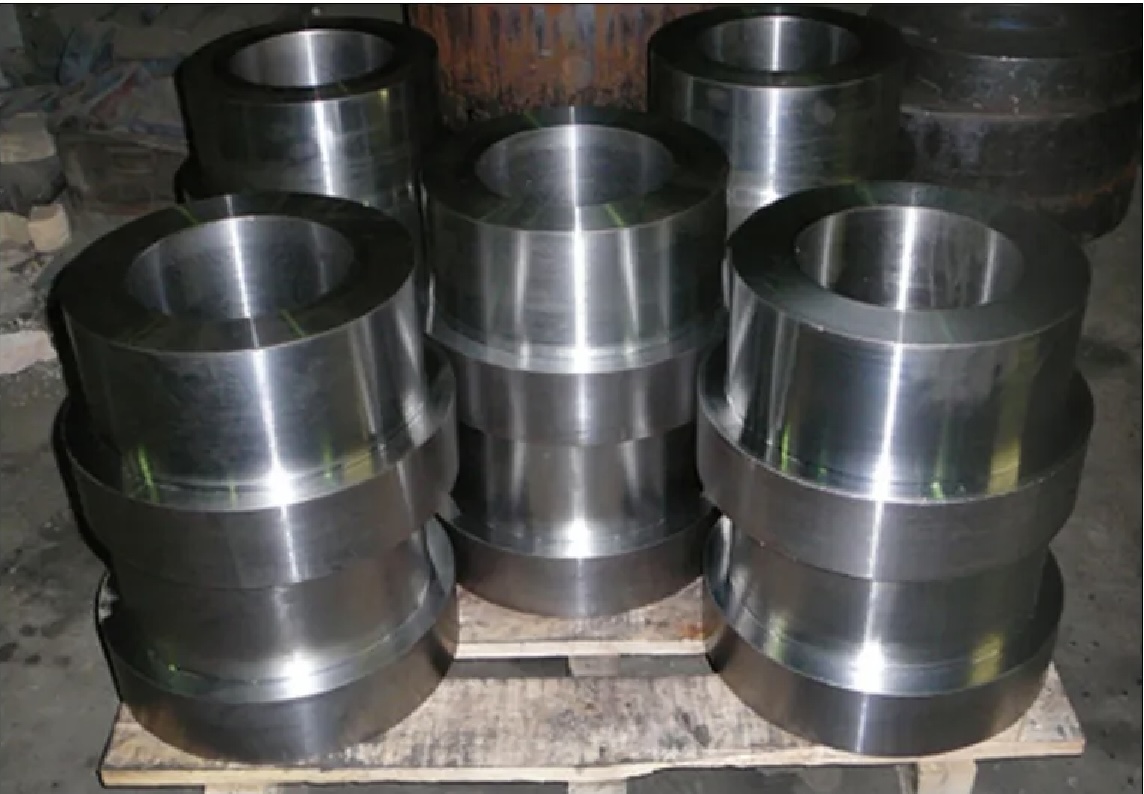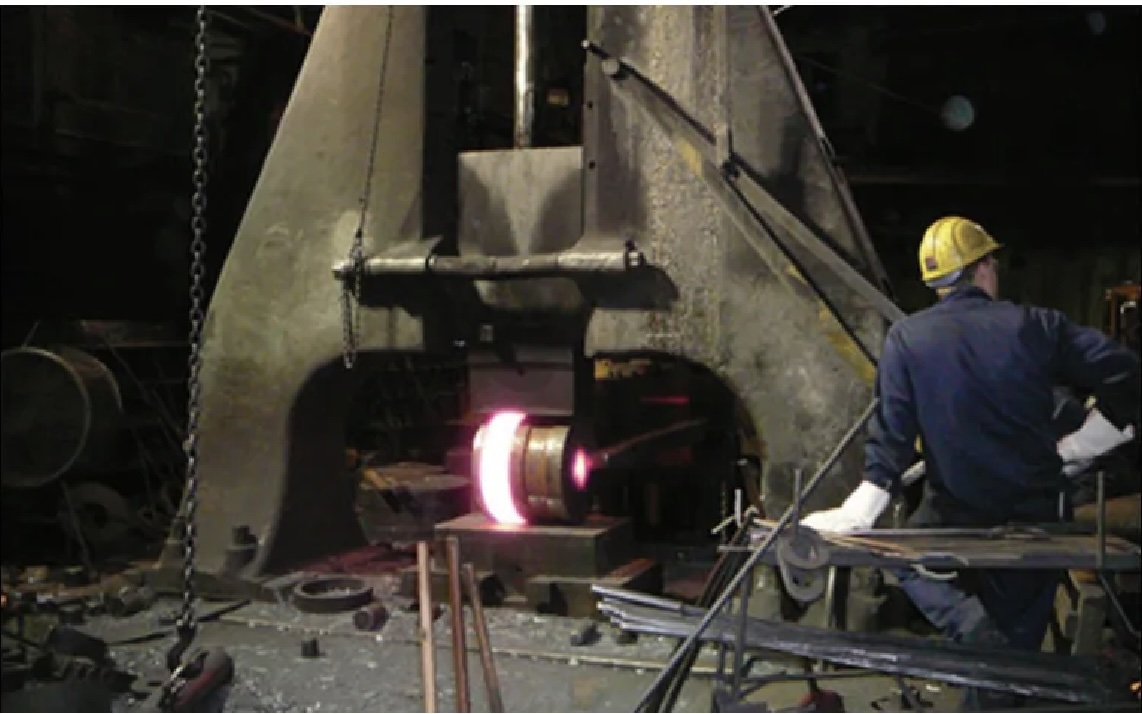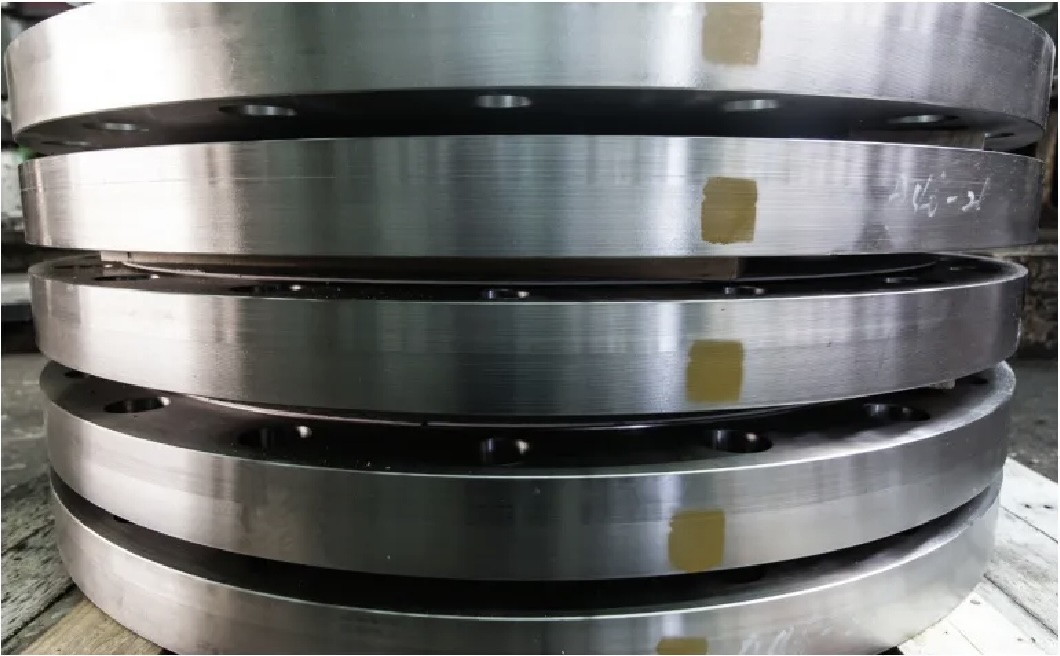Paper Mills Forge Ahead with Speedy Delivery of High-Quality Parts
- Published: June 03, 2024
By Jeff Klein, Director of Sales, All Metals & Forge
 In the pulp and paper industry, large drive and tending heads, rollers, drive shafts, gears and other components are essential in producing pulp paper, board and other cellulose-based products.
In the pulp and paper industry, large drive and tending heads, rollers, drive shafts, gears and other components are essential in producing pulp paper, board and other cellulose-based products.
These precision-forged parts are often found in applications where it is critical to withstand challenging conditions. Open die forgings and seamless rolled rings have a greater lifespan than other products due to their strength and durability, and are less prone to cracking or warping, making the option ideal for critical components requiring high tensile strength.
Depending on the metal and alloy, the rings are also resistant to thermal and chemical damage, which further extends longevity while reducing the need for maintenance, repair and replacement.
Seamless rolled rings can be used in the manufacture of rolling and calendering equipment to promote precise, consistent paper production; in drying systems to provide the strength and durability required for efficiency; and in conveyor systems to ensure the smooth transport of paper products during processing.
For the pulp and paper industry, obtaining large heads and seamless rolled rings in a timely manner remains a significant challenge, however. Currently, it may take many months to receive the forged components after placing an order. This delay can have a severe impact on the production and maintenance schedules of firms that depend on replacement parts.
Rings are typically provided with a rough surface finish, which necessitates the use of CNC machining to achieve the required level of smoothness. This poses a challenge for machine shops with a high workload, as allocating machine time for finishing inevitably leads to a decrease in production speed and an increase in costs, ultimately impacting the end-use cost or profitability.
Fortunately, pulp and paper product manufacturers can rely on industry-leading forging specialists capable of producing large, custom, seamless rolled rings and contoured seamless rolled rings with the required surface finish in under two months. Some manufacturers of custom and standard open die forged parts and seamless rolled rings can cost-effectively deliver these components with the required finish within eight-10 weeks.
The range of forged products can include rings, discs, hubs, blocks, shafts (including step shafts or with flanges), sleeves, gear blanks, cylinders, flats, hexes, rounds, plates and custom shapes. Carbon steel, alloy steel, stainless steel, nickel, titanium and aluminum are among the materials used for forging. These forgings meet rigorous industry specifications such as ASTM, AMS, AISI, ASME, Boeing, SAE, GE, DIN, ASME B 16.5, ASME B16.47 and API 6A.
When speed and quality are essential, the pulp and paper industry can reap the advantages of an accelerated process for obtaining flawless rolled rings.
The Benefits of Open Die Forgings
 One of the chief advantages of open die forging is the customization it offers in the forged parts and seamless rolled ring manufacturing process.
One of the chief advantages of open die forging is the customization it offers in the forged parts and seamless rolled ring manufacturing process.
Open die forging is ideal for providing large, custom parts. Seamless rolled rings or contoured rolled rings up to 200 inches in outside diameter, and custom forgings up to 40 feet long or 80,000 Ibs. can be produced, as well as forgings for drive and tending ends in diameters that cover the sizes needed in the paper and pulp industry.
While open die forging is typically associated with larger, simpler-shaped parts like bars or blanks, the process enables the creation of "custom-designed" metal components.
Open-die forging facilitates the production of seamless rolled rings to exact specifications with optimized mechanical properties and structural integrity. Rings can be produced in a variety of alloys, sizes and shapes specific to the requirements. Forged parts finish machined by machine shops are equally sound in structural integrity and required physical properties.
The forging of seamless or contoured rolled rings is also cost-effective since the process reduces material waste and manufacturing costs. Since the rings are constructed from a single metal piece using a specialized ring rolling machine, there is no need for welding or assembly, saving time and labor.
The seamless rolled rings are also more structurally sound because they create a circular grain flow in the material, following the shape of the ring, which increases strength and integrity, creating a refined grain structure. This can enhance the material's fatigue resistance and overall performance, resulting in a stronger, more durable final product compared to other methods of ring making, such as cutting from plate.
Near Net Shape Parts with Finer Surface Finish
 Typically, when heads, cylinders, shafts or seamless rolled rings are forged, they are often left in an unprocessed state with a rough surface measured at about
Typically, when heads, cylinders, shafts or seamless rolled rings are forged, they are often left in an unprocessed state with a rough surface measured at about
500 RMS. As a result, significant CNC machining time is required to achieve a smoother surface for the finished machined part. This poses a challenge for machine shops as the allocation of machine time for finishing these rough parts directly affects production efficiency and delivery time to the client.
To optimize efficiency and reduce costs, forge shops can provide near-net-shaped forged parts with more refined surface finishes. A 250 RMS surface finish might be typical; 125 RMS may also be provided. Holes can be drilled and forges can be contoured as needed.
While some forge shops only offer a raw unmachined part, production of a rough machine part saves machine shop time and equipment wear and tear as the first rough cuts off the ring or forged parts have already been taken.
In addition, companies can provide ultrasonic testing at zero expense to the customer to guarantee the absence of internal cracks, pits or voids. This instills the utmost confidence in the quality of the parts. In many cases, ultrasonically tested parts can even be more affordable than raw forged rings.
Streamlining Delivery
In today's market, the procurement of forged seamless rolled rings usually takes a considerable amount of time, from 20 weeks to as much as a year, as there are long lead times in receiving the necessary steel from mills. When replacement parts are required, a delay of a year or more is not acceptable; even 20-plus weeks is a serious issue.
To expedite the process for customers, forge shops must establish strategic partnerships within the industry, enabling the company to deliver many custom forgings expeditiously. Furthermore, to minimize any potential production downtime for machine shops, companies should strive to provide accurate quotes within 48 hours.
Positioning for the Future
The need to acquire seamless rolled rings will only increase in industries like pulp and paper that require high-quality custom-forged components that can safely withstand extreme forces with minimal repair or replacement. In these cases, working with an expert forger who can expedite the process will convey a significant advantage.
About the Author
As Director of Sales, Jeff Klein oversees the distribution efforts for All Metals & Forge Group, a company that has been manufacturing and selling open die forgings and seamless rolled rings for more than 50 years. To learn more about its products and services, visit http://www.steelforge.com.




